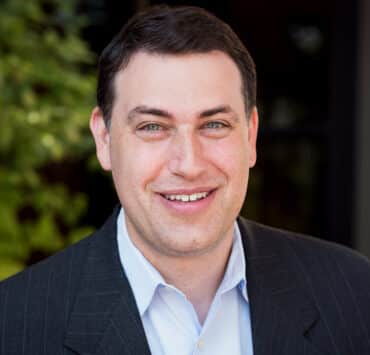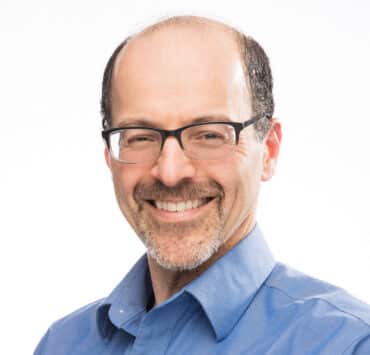|
Getting your Trinity Audio player ready...
|
Elia DeLuca is currently director and global head of employment law for Autodesk, but she took a circuitous path to the global design and software company. She spent time practicing family law and civil litigation, and even served as a human rights advocate for the United Nations.
Her mom was a lawyer and often the only female lawyer at her firm. While she enjoyed the work, she always urged her daughter to take a different path because she saw so many lawyers who were unhappy in their careers. Despite her best efforts—starting college as a science major—DeLuca was pulled to political science from an interest level and wound up following in her mom’s footsteps.
DeLuca worked as an intern at NBC during college, and it was there that a producer who she respected told her that she had gone to law school, which helped her career in broadcasting, so she saw law school more as a way to open up different opportunities.
“I worked during most of law school in the family law group of a local firm, and I found I really liked the practice of law. So, I took the bar exam and started practicing,” DeLuca recalls.
It took her about five years from when she began practicing to find a niche in employment law.
“I never took an employment law class in law school, and yet I can’t think of an area of the law that interests or excites me more,” she enthuses. “What I love about employment law is the opportunity to advise and partner with the leaders who shape a workplace. It entails so much beyond just counseling and litigation.”
After taking on a bit of employment law work at her first firm, DeLuca took a sabbatical to do human rights work. She spent seven months with the United Nations, helping to prosecute war crimes from the Bosnian war.
“What I saw there was the impact you could have in the legal world when you’re working on issues about people and their basic human rights. For me, it was a change from products and device litigation to cases focused on people and their lives and livelihood,” DeLuca offers. “It was after that sabbatical that I came back to the US and shifted toward a more human focused area of the law.” She went to a law firm dedicated exclusively to employment law.
“I never took an employment law class in law school, and yet I can’t think of an area of the law that interests or excites me more.”
Elia DeLuca
DeLuca spent the next five years advising companies on employment law, working with everyone from startups to Fortune 500 companies. She came to a point in her career where she could either continue advising a broad range of clients through a firm or join a company. At the time, she had a number of clients who were willing to pay her rate to have her “seconded” as their interim employment counsel. This brought clarity to the decision and DeLuca ultimately decided that she wanted to move in-house. She set out to find a company to her liking.
“Going in-house means choosing a single client, so I was very selective about that decision,” DeLuca remembers. “I was looking for a mid-size company and was drawn to Autodesk, which at the time was eight thousand employees and had just one employment attorney, so I knew coming in, I would get a great diversity of work. I was also passionate about Autodesk’s mission to create software for the people who design and make a better world.”
DeLuca encourages others to remain open to opportunities and not become tunnel-visioned in their careers, a quality that she attributes for much of her professional success. She only recently realized that her UN human rights work was the bridge that connected her from being a general civil litigator to a global employment lawyer.
“That important work impressed upon me the unique impact you can have in an area of the law that deals with human experience,” DeLuca shares. “I often tell lawyers early in their career to remain open to opportunities because you never know where those roads might lead. It’s only in retrospect that you can connect the dots and see how your career evolves in a certain direction.”
DeLuca now leads the global employment team at Autodesk. In her opinion, it’s an exciting time to be an employment lawyer.
“When I first started practicing law, employment law was largely litigation and class action work; that is very little of what I do today.”
Elia DeLuca
“When I first started practicing employment law, it was largely litigation and class action work; that is very little of what I do today,” she explains, “especially amid the pandemic, where companies are chartering new territory around how and where employees work. I love advising on these novel issues related to the future of work. Most of my time is spent proactively advising on issues and training related to policies, growth, and building a diverse workforce and a culture of belonging.”
Speaking of the pandemic, one of her big responsibilities over the last two years has been advising on Autodesk’s approach to managing hybrid work, which has been a key initiative for the company. She and her team advise internal clients across the many global divisions of Autodesk, which is currently in almost fifty countries.
“I have an incredible team at Autodesk who help to tackle the work,” she adds. DeLuca has colleagues abroad who focus on country-specific issues as well as a dedicated global employment team in California.
“I have two fantastic lawyers on my team who I am training to be global employment lawyers, because a big focus of mine is developing my team to address issues on a global scale,” she says. “Autodesk has grown a lot since I started—we are nearly 13,000 employees now and are entering new countries each year. I’m proud of the work my team has done to support this growth and change and look forward to what comes next.”


